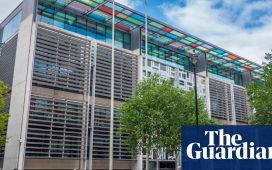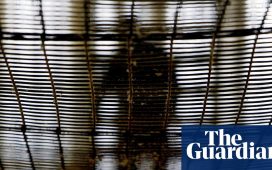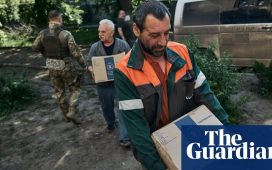Young men and boys fuelled by “strongly misogynistic” online material are hunting for vulnerable women and girls to exploit on websites such as eating disorder and suicide forums, senior officers have said.
The threat from young males wanting to carry out serious harm is so serious that counter-terrorism officers are joining the National Crime Agency (NCA) in the hunt for them, fearing they could go on to attack or kill.
Britain’s head of counter-terrorism, Matt Jukes, told the Guardian that a joint taskforce would be set up between his force and the NCA to tackle those fixated with violence online, in what he called a “decisive moment”.
Jukes, the Metropolitan police force’s assistant commissioner for specialist operations, said the new pairing would look for those consuming online material about killings or sexual abuse. Those who might go on to plot school shootings and other mass attacks, as well as those who encouraged women and girls to harm themselves, would also fall under their remit.
The new taskforce will also tackle so-called com networks (online communities), which counter-terrorism policing (CTP) and the NCA said involved hundreds of boys and young men. They will also hunt for those viewing material inciting sexual abuse.
The decision to pool the efforts of CTP and the NCA is being driven by the fear that it might be impossible to tell whether an obsession with violence and gore could turn into terrorism, a school massacre or other serious attack until it was too late.
Jukes, who is expected to be a candidate for the deputy commissionership of the Met, said: “What we’ve seen over the years is the characteristics of those cases looking increasingly similar.”
Com networks grew sixfold between 2022 and 2024 and are mainly young males joining together online to carry out hacking exercises and hunt for victims to steer into sexual abuse or worse.
James Babbage, the director general of threats for the NCA, said com networks were believed to have hundreds of people in the UK alone.
“We think they’re mostly doing it for kudos, for notoriety … within their peer group online,” he said. “In general, they are looking for victims who are already vulnerable. So they are looking at sort of suicidal ideation sites. They’re looking at eating disorders forums.”
Jukes said: “Young people who might have felt very isolated in some of their ideas and interests might never even have thought of some of the things which they’re now accessing … so people are getting both content and validation.
“We’re going to go after the com networks. We are going to go after those who appear to be administrating and facilitating them.”
The boost to the hunt for potentially violent young males comes after the Guardian revealed that the Southport attacker who murdered three girls at a dance class last July had been referred and rejected three times by the Prevent programme.
Prevent exists to identify those at risk of supporting terrorist violence. The Southport attacker had shown insufficient signs of ideological extremism but did have an interest in violence, including school massacres.
Babbage said: “The violence-fixated individuals that are coming up on the radar for terrorism policing, the tech-enabled violence against women and girls that police are seeing and the com networks that we’re seeing engaged in child sexual abuse and cybercrime – to some degree, this sort of young male community, it’s sort of the same threat.
“People are spinning up and radicalising and getting into more extreme harm, and might spin out and end up presenting as any one of those things.”
The material driving the young males to view horrific material and to potentially offend “has a very significant dose of misogyny in it”, Babbage added.
Jukes said the internet had “turbocharged” material triggering resentment among some young men: “In com networks and in terrorist networks, the idea that the interests of men and boys have been relegated, and the interests of women have been elevated, leads directly to violent misogyny.”
He said there were “technological and engineering” solutions to the crisis, and that big tech could help by stopping the algorithms pushing extreme content to youngpeople who wanted it. They could also aid police in helping to detect young people searching for violent content.
Jukes added: “The scale we’re talking about is beyond human intervention. There are too many users, too much traffic.”
In the UK and Ireland, Samaritans can be contacted on freephone 116 123, or email jo@samaritans.org or jo@samaritans.ie. In the US, you can call or text the National Suicide Prevention Lifeline on 988, chat on 988lifeline.org, or text HOME to 741741 to connect with a crisis counselor. In Australia, the crisis support service Lifeline is 13 11 14. Other international helplines can be found at befrienders.org










